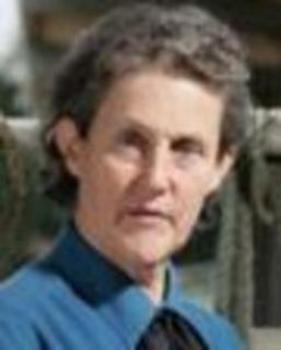Date: 01-17-11
Event: Dr. Temple Grandin
If you would like to earn ASHA CEUs for this course, please view the recorded version:
Autism and My Sensory-Based World
The audio for this interview can be downloaded as an MP3 file from the link below if you would like to listen to the interview:
Listen to MP3 Audio
Click Here to View Supplemental Handouts
This text is being provided by Communication Access Realtime Translation in order to facilitate communication accessibility and may not be a totally verbatim record of the proceedings.
>> Amy Hansen:
Welcome to Autism in My Sensory Based World conducted by the highly accomplished and talented Temple Grandin. My name is Amy Hansen and I'll be your moderator for today's online course.
>> Linda Schreiber: I am so honored this morning to introduce Dr. Temple Grandin to all of you. Dr. Grandin lectures parent and teachers throughout the U.S. on her experiences with autism. Her articles and interviews have appeared in the New York Times and People Magazine, and on National Public Radio, the View, and the BBC. She was also honored in 2010 by Time Magazine as being named one of the 100 most influential people in the world. We're extremely honored to have Dr. Grandin join us today from Fort Collins, Colorado, where she's currently a professor at Colorado State University. Good morning, Dr. Grandin.
>> Dr. Temple: Good morning. It is really good to be here.
>> Linda: We're so happy to have you. We're very interested in your views on autism and know you have a lot to share with us. I know you have a program set for us and I am going to have you begin.
>> Dr. Temple: It is wonderful to be here today on audio. I think I'll just start out with my program. I can't emphasize enough the importance of early educational intervention. If you have a young autistic two, three, four-year-old child sitting in the corner rocking, the worse thing you can do is nothing. You have got to start working with this child. I know there are situations where parents may be on a waiting list for diagnosis that might be a year or maybe two years away. Don't wait. Get students, get grandmothers, get anybody to just start working and interacting with that child. Play games with them. Teach them how to take turns. Play little turn-taking games. Autistic kids resist that. Turn taking was taught to me with board games. Do nursery rhymes. Teach them words. Work with them. The research is very clear; these young children need 20 to 30 hours per week of one-to-one instruction with an effective teacher. Now, there is a lot of controversy on exactly which program to use but everybody agrees that you need that 20 to 30 hours a week of one-to-one contact with an effective teacher.
This slide just shows a teacher grabbing a little kid by the chin and my speech teacher used to do this with me. She would say, "Come on, pay attention." A good teacher has to be gently insistent. If you push too hard then the child may go into sensory overload. If that happens you're not going to get anywhere. How do you know how hard to push?
If you take some kids into a big supermarket like a Walmart or someplace like that, they have a screaming fit. The child feels like he's inside the speaker at the rock 'n roll concert. Some of these kids are monochannel. They are not able to see and hear at the same time. They can either listen to something or they can hear something but they cannot do them both at the same time.
You have heard some of the different labels for problems with the sensory system - sensory problems - problems with sound sensitivity, problems with not tolerating touch, or visual sensitivity occur in many different disorders: autism, dyslexia, learning problems, ADHD, Asperger syndrome, oppositional defiant, head injuries, and many others. These labels are not precise; they are just labels, meaning there is no lab test to show it exists for a child. In the DSM V [about to be released] these labels, mild autism with no speech delay, Asperger syndrome; these will all be merged into autism spectrum disorders with the main emphasis being on problems with social reciprocity, back-and-forth social issues, fixated interests, and repetitive behaviors.
Autism and My Sensory Based World
January 24, 2011
